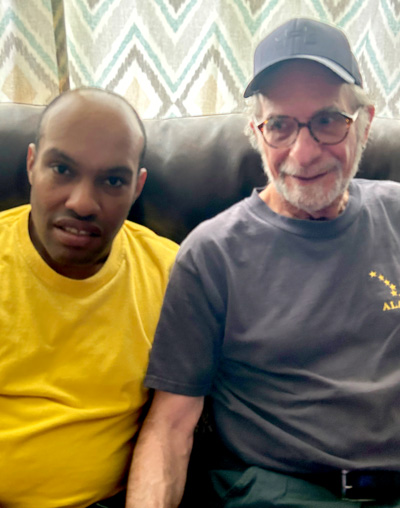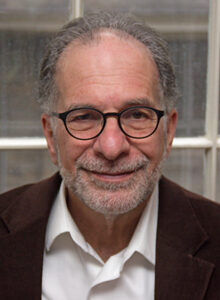It was a heartwarming viral moment that many will never forget. As the father of Tariq, my adult son with autism who is nonspeaking, it struck a deep chord in me. Most men have grown up with the maxim that “Big Boys Don’t Cry.” Breaking that traditional masculine model with exuberant cheers and tears of joy, Gus Walz gave his dad a standing ovation, shouting, “That’s my dad!” A healthy model of masculinity was displayed before the world. The whole Walz family, along with millions of us, embraced Gus—an obviously neurodivergent teenager.
Watch Tariq’s Story: Navigating Autism and Intellectual Disabilities with Love and Care
Tim and Gus were not restrained by what William Pollack, PhD, has called the “gender straitjacket” that locks down boys and men from expressing the tender side of their emotions. The moment transcended politics and touched the full range of the human heart. The traditional model relegates anger as the primary socially acceptable emotion for boys and men. In contrast, anger is often seen as socially unacceptable for girls and women. This is a harmful effect of the gender straitjacket on human society. The potential for change exists, but progress has been slow.
Gus Walz has an advantage because he is neurodivergent and capable of expressing himself authentically in the moment. His parents told People that he was different from his peers and that “Gus preferred video games and spending more time by himself.” By his teen years, he was diagnosed with non-verbal learning disorder, anxiety, and ADHD. His parents also shared, “It took time, but what became so immediately clear to us was that Gus’ condition is not a setback — it’s his secret power.” As his heart overflowed with pride and joy at what his father was speaking about, he wasn’t concerned about what people would think. This reminds me of how my son, in his 40s, will still hold my hand when we go for a walk in the park or put his head on my shoulder when watching cartoons on the sofa. I’m guessing from my own lived experience that Gus has taught his father a few things about what it means to be human.

Robert Naseef with his son Tariq
Besides pride and joy, Gus’ display of emotion also evoked fear and possibly shame outside our bubble in the broader society. Some mocked Gus’ tears online, which unleashed a torrent of insults that are frequently used to bully and intimidate people with disabilities. Ableism in its most vile manifestation was evident, but it is part of something bigger and more insidious—fear of those who are different.
Violence online and violence around the world creates horrific situations, especially for children and women. Wars raging in various parts of the world often result in the deaths of innocent civilians—mostly children and women. As Matthew Rycroft said in a speech to the UN at the Security Council Open Debate on Children and Armed Conflict, “How a society treats its most vulnerable is always the measure of its humanity.” Living in one of the world’s most prosperous countries, we have to do better.
There is much we can learn from Gus Walz’s pride, joy, and tears. The tears and hugs are authentic and healthy. War, racism, homophobia, antisemitism, Islamophobia, transphobia, or other fears that stoke violence toward others are all rooted in insecurity and fear. Boys and men who cannot cry or show compassion to others different than themselves are not the brave ones. They are insecure and fearful. The strong ones who have caring feelings toward others can work and fight in a different way—not through mockery, hurtful words, or physical violence. Instead, we can stand strong to demand and work tirelessly for social justice and peace.
The disability rights movement has been built on the principles of the Civil Rights Movement, which include nonviolence and working within institutions to promote liberty and equality for all. Many of us, as adults, are concerned about potential rollbacks to the rights and protections that have been hard-won for our children. For the sake of our children, we must continue to move forward.
As Martin Luther King, Jr. said, “The time is always right to do what is right.”
VOTE and tell everyone you know how important it is for our children.
This article was originally published on August 30, 2024, here and has been modified for publication in Autism Spectrum News.
Robert Naseef, PhD, is a clinical psychologist, author, and parent of an adult son with autism. He is the co-facilitator of a fathers’ support group at the A J Drexel Autism Clinic. He serves on numerous boards and blogs regularly at drrobertnaseef.com.






